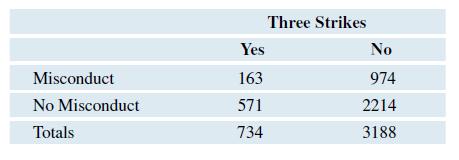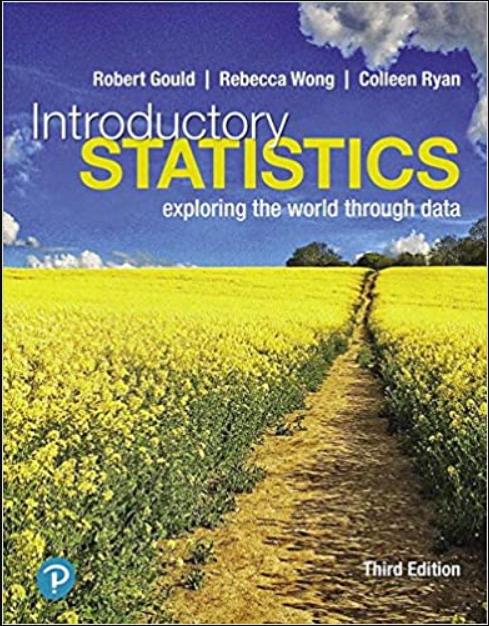Californias controversial three-strikes law requires judges to sentence anyone convicted of three felony offenses to life in
Question:
California’s controversial “three-strikes law” requires judges to sentence anyone convicted of three felony offenses to life in prison. Supporters say that this decreases crime both because it is a strong deterrent and because career criminals are removed from the streets. Opponents argue (among other things) that people serving life sentences have nothing to lose, so violence within the prison system increases. To test the opponents’ claim, researchers examined data starting from the mid-1990s from the California Department of Corrections. “Three Strikes: Yes” means the person had committed three or more felony offenses and was probably serving a life sentence. “Three Strikes: No” means the person had committed no more than two offenses. “Misconduct” includes serious offenses (such as assaulting an officer) and minor offenses (such as not standing for a count). “No Misconduct” means the offender had not committed any offenses in prison.
a. Compare the proportions of misconduct in these samples. Which proportion is higher, the proportion of misconduct for those who had three strikes or that for those who did not have three strikes? Explain.
b. Treat this as though it were a random sample, and determine whether those with three strikes tend to have more offenses than those who do not. Use a 0.05 significance level.

Step by Step Answer:

Introductory Statistics Exploring The World Through Data
ISBN: 9780135163146
3rd Edition
Authors: Robert Gould, Rebecca Wong, Colleen N. Ryan





